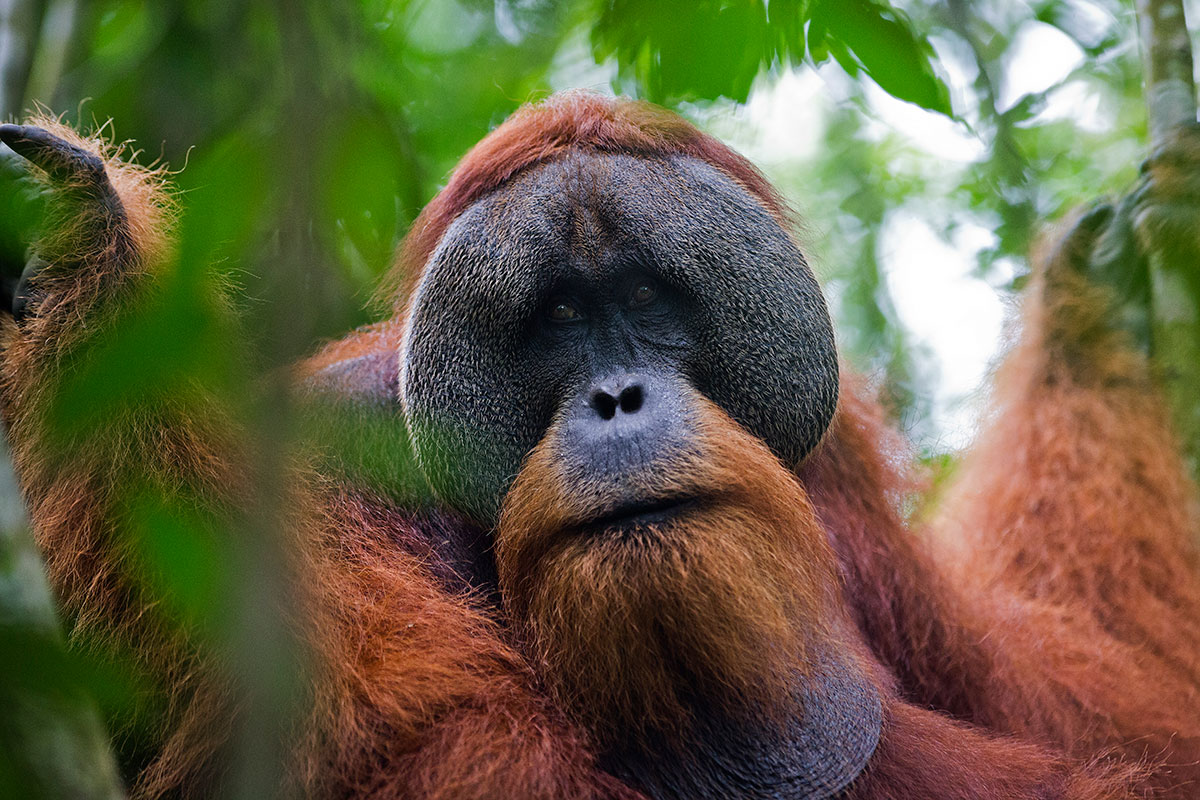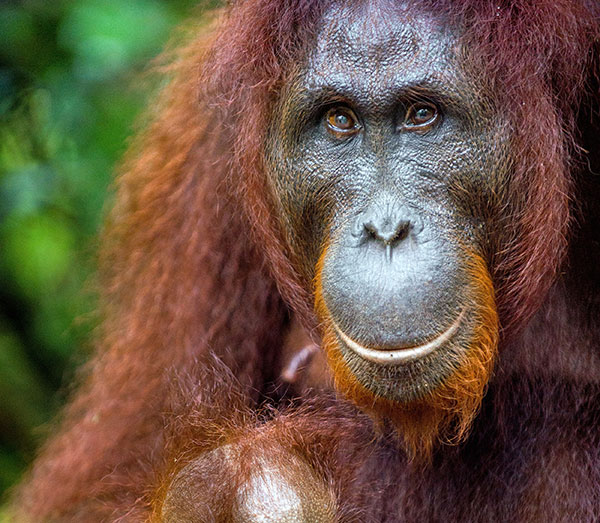Bornean Orangutan
(Pongo pygmaeus)

Rainforests of Borneo in Indonesia and Malaysia
You can find me hanging in the durian tree snacking on my favorite fruit that tastes and smells of sweet cheese, garlic, and smelly socks. YUM!
About me
I can live up to 40 years in the wild if humans don’t cut down my home. Male Bornean Orangutans have those signature cheek pads that make us look very handsome and intimidating, and females are much smaller in size.
We’re critically endangered because of deforestation and habitat loss for new roads and pulp and palm oil plantations, and the illegal pet trade. We rely on durian trees for food and the forest for everything we need. In fact, when we devour our beloved durian fruits, we discard the skin, eat the flesh, and spit out the seeds, acting as major seed dispersers for this fruit as well as for so many others. We’re pretty great.

Fast Facts: Did you know?
We stick with our parents for a very long time, longer than almost any other animal in the world? (You beat us, humans.) Babies are nursed for up to 6 years and females stay with their families for their entire lives.
We might be lookalikes of our
Sumatran cousins, but we actually have rounder faces and a darker red fur coat.
We like it comfy: Give us 10 minutes and we’ll build a nest out of branches and twigs for the night. In fact, we make a new nest every night. Also, I’ve heard humans count our nests to guesstimate our population in a given area, which is pretty smart!
The rainforests of the Amazon, Congo, and Indonesia are our last best line of defense against the biodiversity and climate crisis. But 17 corporations are making massive profits by driving their destruction and the violation of human rights. That has to end NOW.
Why I want to Keep Forests Standing
Like I said before, we’re critically endangered with populations decreasing. This is mainly due to deforestation and habitat loss due to expanding palm oil and pulp plantation development, mining/energy production, and residential development. But now, because forests keep getting cleared, climate change is also starting to affect our environment and lifestyle. We rely on forests for our survival — without them, there is no Bornean Orangutan.



 Rainforests of Borneo in Indonesia and Malaysia
Rainforests of Borneo in Indonesia and Malaysia